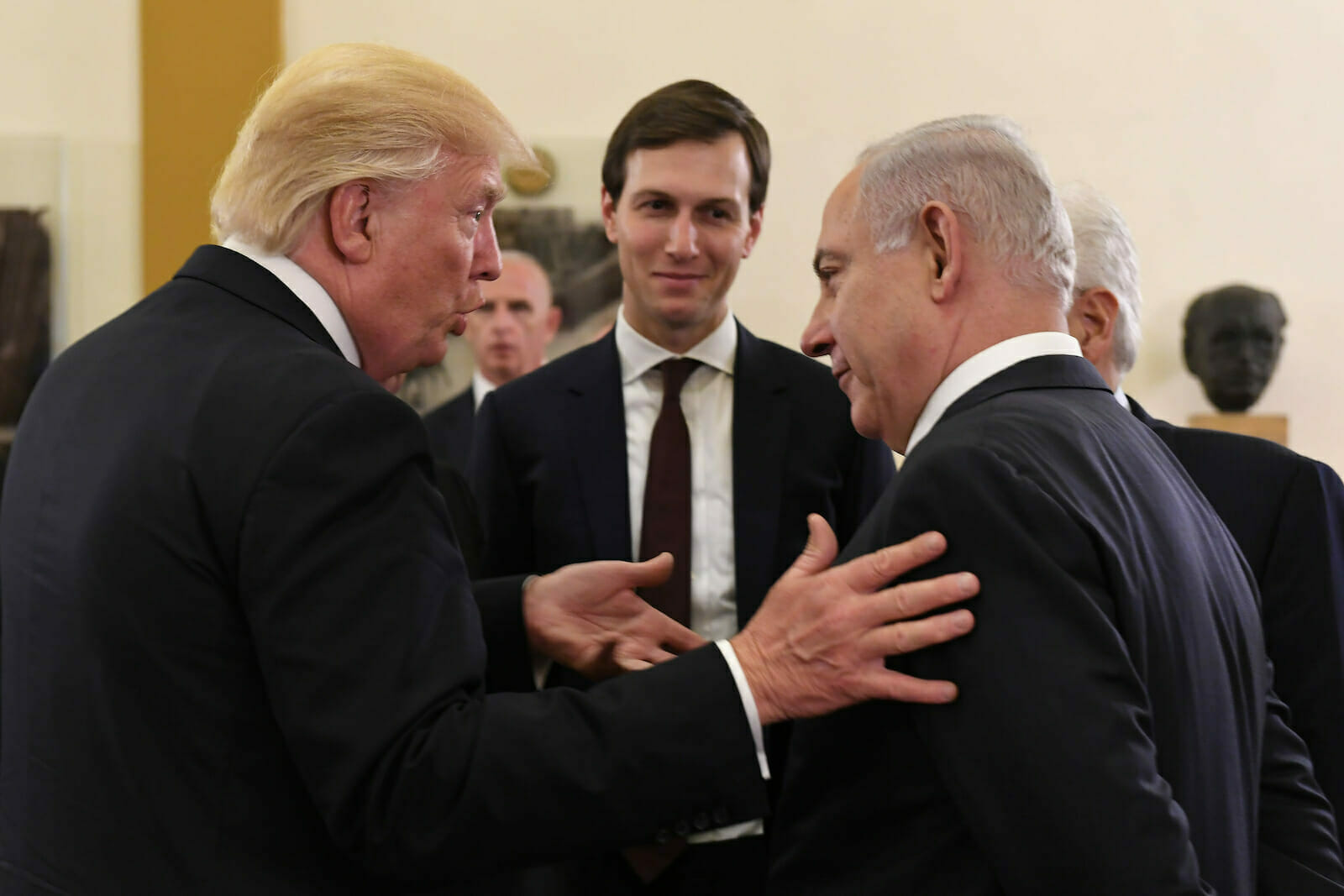
Donald Trump’s Mortal Sin
What’s the worst thing Donald Trump ever did?
Insult someone on Twitter? Declare bankruptcy? Sell a condo to a Russian?
No, he swerved around the “Middle East peace process” and advanced America’s interests in the region – and deprived the kleptocrats in Ramallah of their veto over their neighbors’ politics.
The Abraham Accords, which normalizes relations between Israel and Bahrain, the United Arab Emirates (UAE), Morocco, and Sudan, has changed the state of politics in the Middle East and it took a property developer from New York City to do it.
How did it happen? In the words of Mike Hammer, “It was easy.”
Trump first offered the Israelis and the Palestinians the “Peace to Prosperity” plan for political and economic transformation. When the Palestinians rejected the plan, the White House pivoted to Plan B – normalization of existing low-profile relations between Israel and many of its Arab neighbors.
Trump’s approach may have been influenced by Bill Clinton’s painstaking negotiation of the Clinton Parameters with Palestinian leader Yasser Arafat and Israel’s Ehud Barak. The parameters were to guide the final status negotiations between the Israelis and the Palestinians. Both sides had objections to aspects of the parameters but it was Arafat who walked away after telling Clinton he was a “great man.”
The takeaway: the Palestinians can only stop progress if they are involved.
What else did Trump know?
First, if you are dealing with royal families, send a member of your royal family.
The stable of U.S. peace envoys is well-known to Middle East leaders but they are like a 90s rock band that now only appears at casinos in the Midwest: they can turn in a workmanlike performance, but they haven’t had a hit in decades. Better to deal with someone who has walk-in privileges to the Oval Office and a thicker-than-water relationship with the guy at the Resolute desk.
Next, the other side has to get something, and that “something” means fighter planes or the removal of sanctions.
Verbal assurances from Americans don’t always mean anything – ask the Russians about those promises about NATO expansion. And written commitments are no better – ask the Ukrainians what they got in return for giving up nuclear weapons.
That IOU from Washington can’t be redeemed at will, so best negotiate for something now.
Trump set the stage by ordering a troop pullback from the region, so local governments can’t rely on the U.S. for security and mediation. And he ordered the killing of Iranian military leader Qassem Soleimani to signal the U.S. would get involved only when something needed doing that only America could do.
Trump also understood economics was part of the process. He felt securing a few billion dollars of contracts for American companies (and jobs for American workers) was his responsibility, so he had no objection to dealing with those icky business details that many negotiators don’t understand (and avoid).
But Trump didn’t do it alone. This success has many fathers.
Barack Obama promoted the Iran nuclear deal, the Joint Comprehensive Plan of Action (JCPOA), which smoothed Iran’s path to nuclear weapons, unnerving its neighbors.
Iran used the billions of dollars returned to it by the JCPOA to spread more mayhem in the region, solidifying an opposing Arab-Israeli front that now wants a role in Biden administration talks with Iran, claiming they have more at stake than the U.S. and other crafters of the nuclear deal.
Middle East leaders needed to jump-start their economies after COVID-19 and reduce their youth unemployment rate, the highest in the world. And young leaders, such as Mohammed bin Zayed of the UAE and Mohammed bin Salman of Saudi Arabia need to diversify their economies and want to deal with the region’s technology leader, Israel.
Many members of the Saudi royal family support normalization. Prince Bandar bin Sultan’s interview where he criticized the Palestinian leadership green-lighted the idea, though Riyadh will probably normalize with Jerusalem only after an Israel-Palestinian deal.
As Trump leaves office he has changed the way presidents negotiate with their opposite numbers.
He used a family member to assure Middle Eastern leaders they were hearing exactly what he thought, which also maximized security.
He leveraged negotiations to get contracts for U.S. companies. Economics may be a feature of future negotiations, not something shrugged off for the private sector to pursue later while the political guys take their gains now. (The U.S. didn’t use its leverage after the liberation of Iraq and China and Russia got the best energy deals.) If future American leaders are unsure how to do it, a call to the Élysée Palace will clear it up.
And he stepped over the border into North Korea to meet Kim Jong-Un to start negotiations, not as a reward for compliant behavior. In the process he legitimated Kim, but only a fantasist thinks Kim (and his nuclear program) are going away. Trump mounted that mental hurdle so it became a matter of working out the terms to integrate North Korea into Asia’s economy (and keep an eye on those nukes).
What will a President Joe Biden do with Trump’s legacy?
After a lifetime in Washington, Biden is comfortable with the Blob and, given his obvious health issues, he may adopt a process that minimizes direct interaction with foreign leaders. But his health may make foreign leaders press for meetings to assess his condition themselves and to take advantage of his weakened state.
Whatever modality Biden picks, or is forced on him, he would be wise to build on what Trump started, which he commended, instead of rushing headfirst back to “Obama’s” JCPOA.
The region has changed since the 2015 Iran deal.
Iran’s economy is in free fall and the mullahs now have to consider those Russian and Turkish troops and Syrian Sunni fighters in Armenia and Azerbaijan to the north.
Israel is firming up its relations with Bahrain and the UAE to Iran’s west.
If Iran did strike Israel, and Israel retaliated, Arab reaction may be muted. (It’s a win for the Arabs: the Jews are smacking the Persians, and all they have to do is give the radar operators the night off at the right time.)
Even Europe, which rebuked Trump’s exit from the JCPOA and “maximum pressure” campaign, is confronting the true nature of the Islamic Republic in the wake of recent kidnappings, and an assassination plot, conducted on European soil. (If Biden heeds Europe’s growing caution about Iran, it would be a case where it’s good that a politician didn’t keep a campaign promise.)
Aside from the security benefits, the Israel-Arab normalization is an acknowledgment of the economic concerns of young Arabs and Muslims in the Middle East and Africa. It is a vote for the interests of youth.
Normalization will encourage more foreign direct investment and will keep local capital, that might otherwise have gone to Europe or Asia, in the area creating opportunity. This will be key for the energy-dependent countries that need to grow their economies to reduce reliance on the energy sector and to shrink the public sector which been used to employ graduates in lieu of private-sector jobs.
For opponents of a Jewish state, it’s not all doom and gloom. Israel’s engagement with the UAE, the country in the region that has most embraced religious tolerance, will increase the Arabs’ leverage with Israel when the time comes to make a deal with the Palestinians.
So, will Joe Biden be quick enough to grasp the baton from Trump? Fingers crossed.

